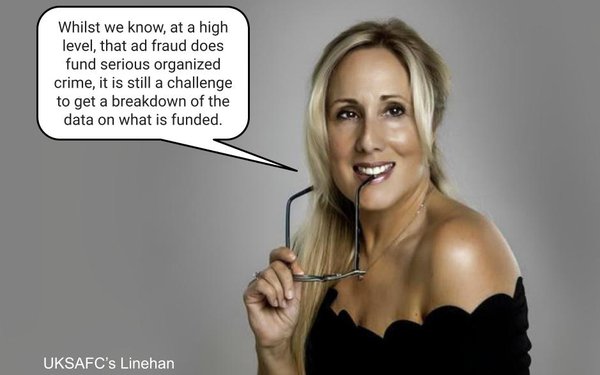
The bad news is that industry experts
estimate as much as $120 billion in media buys is wasted on various forms of ad fraud each year. The even worse news is much of it underwrites nefarious criminal activities.
Needless to say, all
of that fraud technically is funding criminal activities. That's inherent in the categorization that it actually is "fraud," but while much of it simply the conventional kind -- fleecing advertisers
and agencies for bogus ad buys such as invalid traffic, etc. -- a good deal of it finds its way to bad actors committing dangerous criminal activities ranging from various forms of hybrid warfare
(disinformation campaigns) to children's porn.
You probably recall that only a few weeks ago, an Adalytics analysis uncovered major blue-chip brands advertising on sites connected to
children's porn, meaning that brands and agencies aren't just getting ripped off, but their budgets are contributing to significant amounts of societal harm.
advertisement
advertisement
I don't think anyone knows the
actual magnitude of that, and the ad industry -- especially the major trade associations -- have been focused mainly on detecting and preventing the ad fraud part of the equation, which is certainly a
good thing and, in theory, should help eliminate ad dollars falling into harmful hands.
"The challenge actually is that whilst we know, at a high level, that ad fraud does fund serious
organized crime, it is still a challenge to get a breakdown of the data on what is funded," notes Julia Linehan, founding advisor for UKSAFC.org (U.K. Stop Ad Funded Crime), which this morning
launched a new campaign to get the ad industry to do exactly that.
"The problem media and politicians struggle with is that if you don't know who is being paid, you also don't know what it is
used for," she continues, adding, "That is why it is imperative to get the KYC measures in place to cut off money from ad revenue making its way into the hands of criminals. Cut off the flow at source
and this will have a huge impact on reducing money going to fraudsters/criminals."
The campaign, which is centers on a "Know Your Customer" initiative, calls on advertisers and agencies to
verify the credentials of the publishers and websites on which their ads appear.
The effort focuses on creating awareness among buyers, sellers and intermediaries in the programmatic advertising
supply chain to "carry out due diligence checks on every company they deal with."
Easier said than done, right? I mean, big advertisers and agencies already invest oodles in ad fraud
detection services, but the UKSAFC is recommending they go a step further: requiring all programmatic ad inventory suppliers to provide independent verification of their company’s name,
registered address and company number, company directors, and the company’s bank details.
Personally, I don't know that that is enough. To me, ad fraud in general -- and ad fraud funding
criminal activities in particular -- is like an arms race utilizing media-buying innovation to figure out the next new vector for exploiting an open marketplace of programmatic advertising. There will
always be new ways of exploiting it, but the goal is to reduce the magnitude and force it into the margins of the darkest media shadows.
But this seems like a good start.